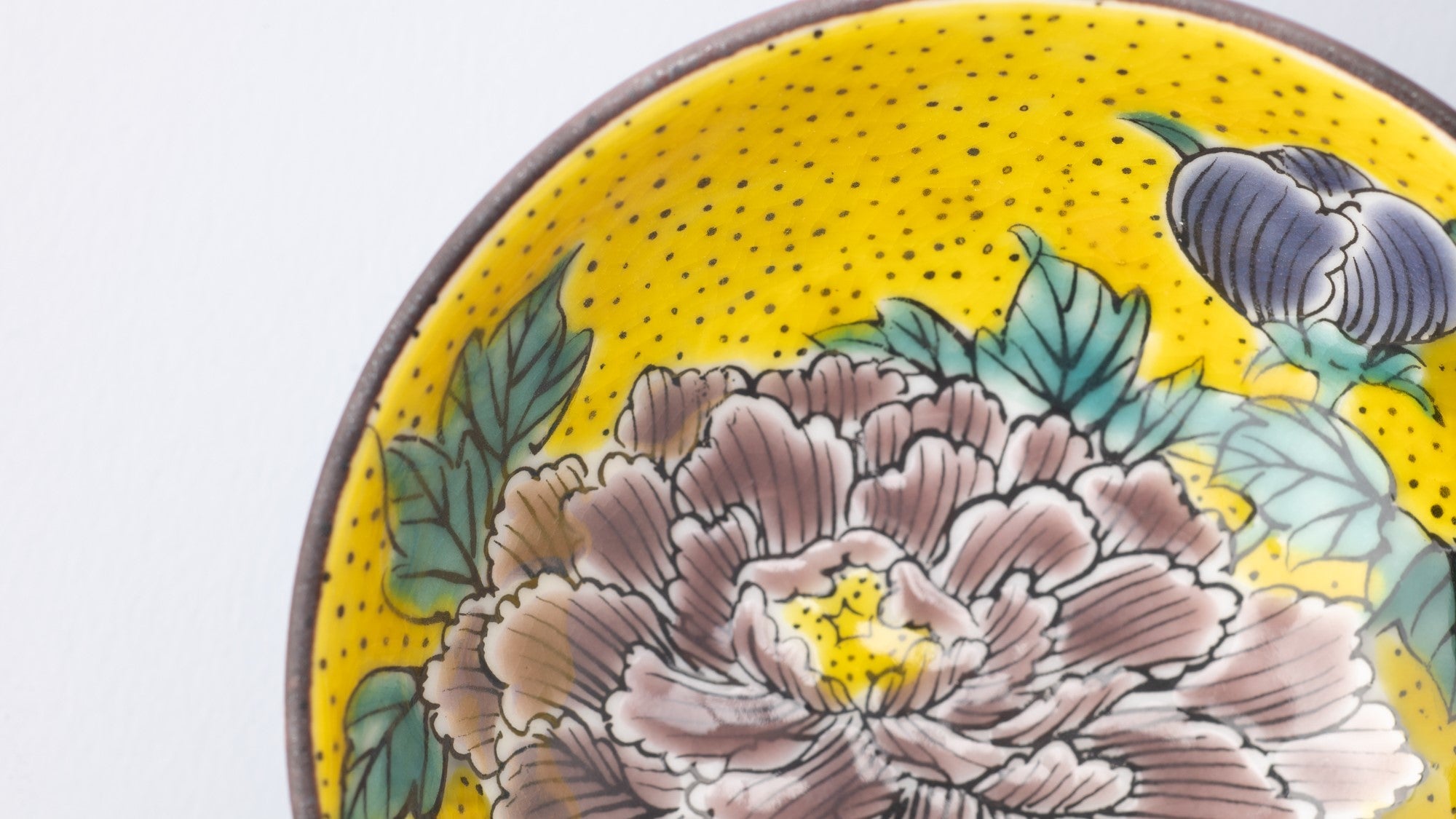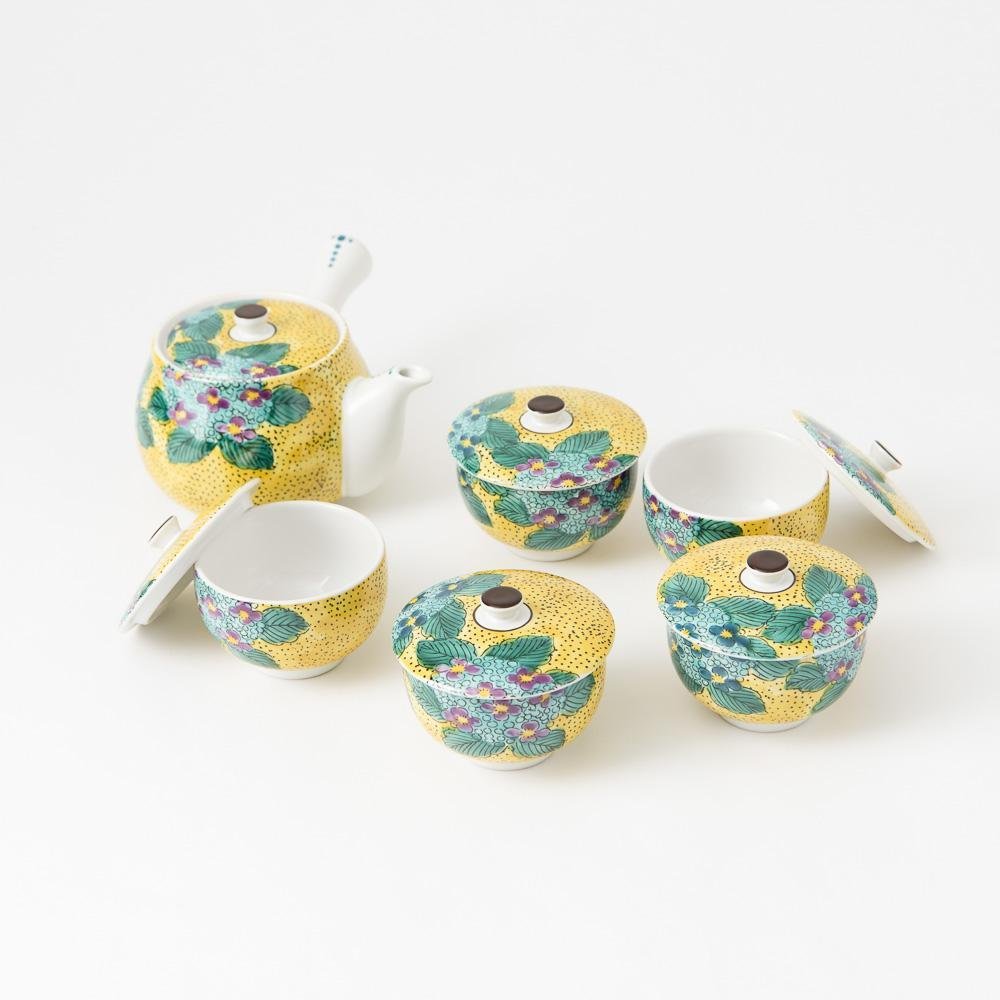
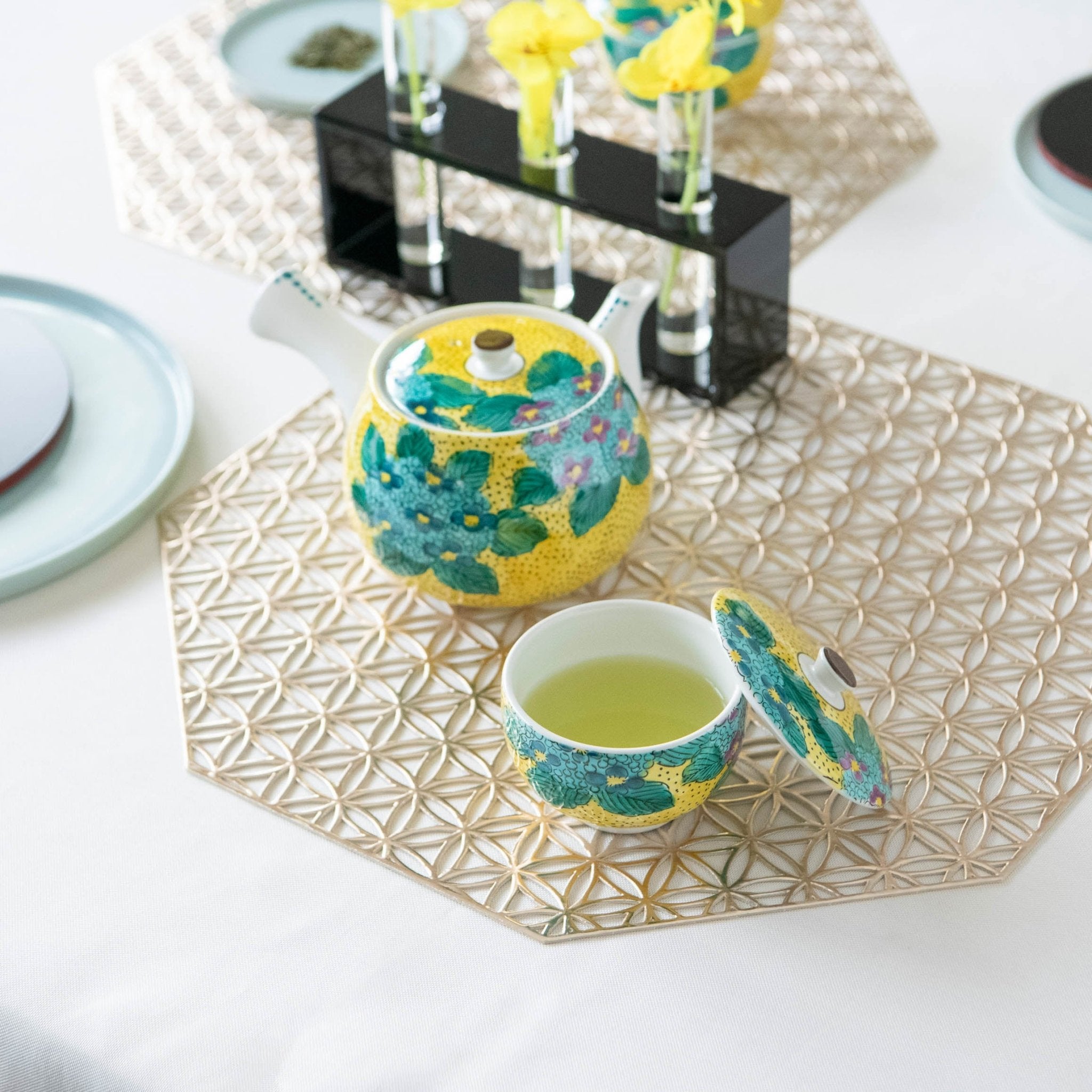
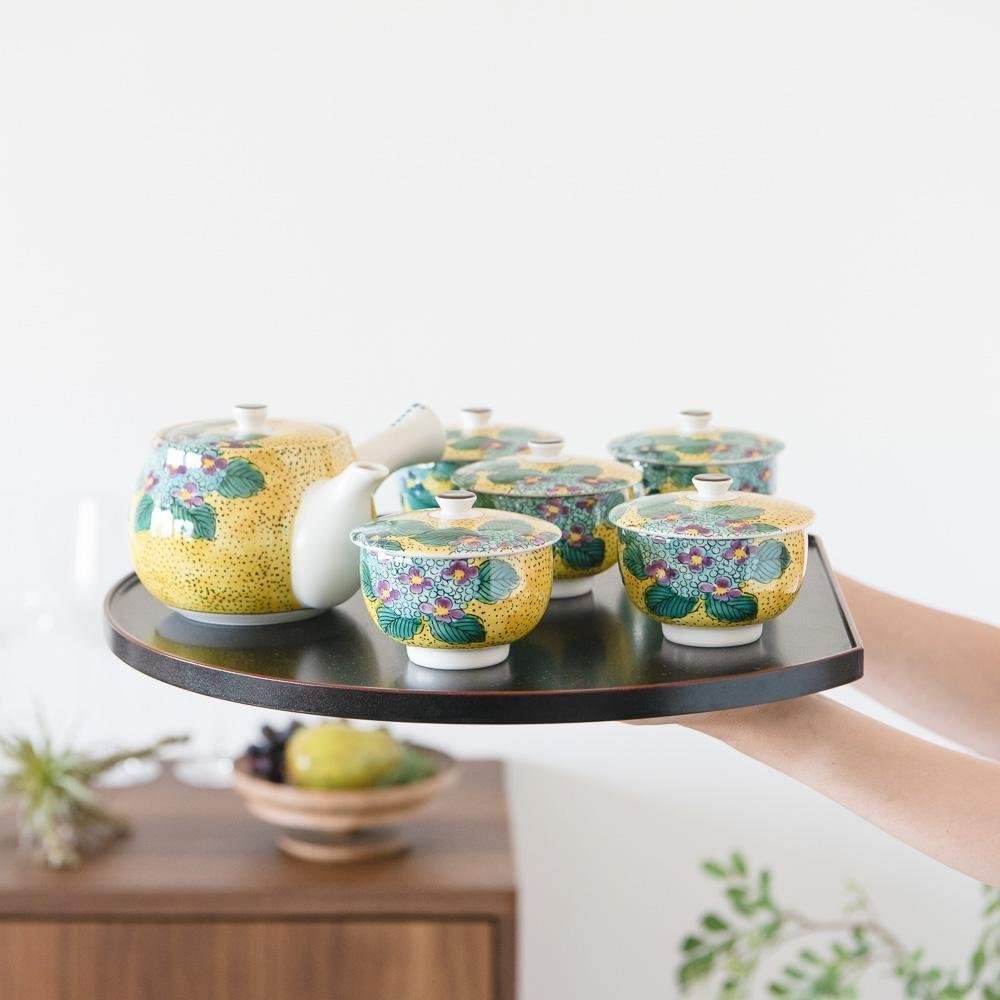
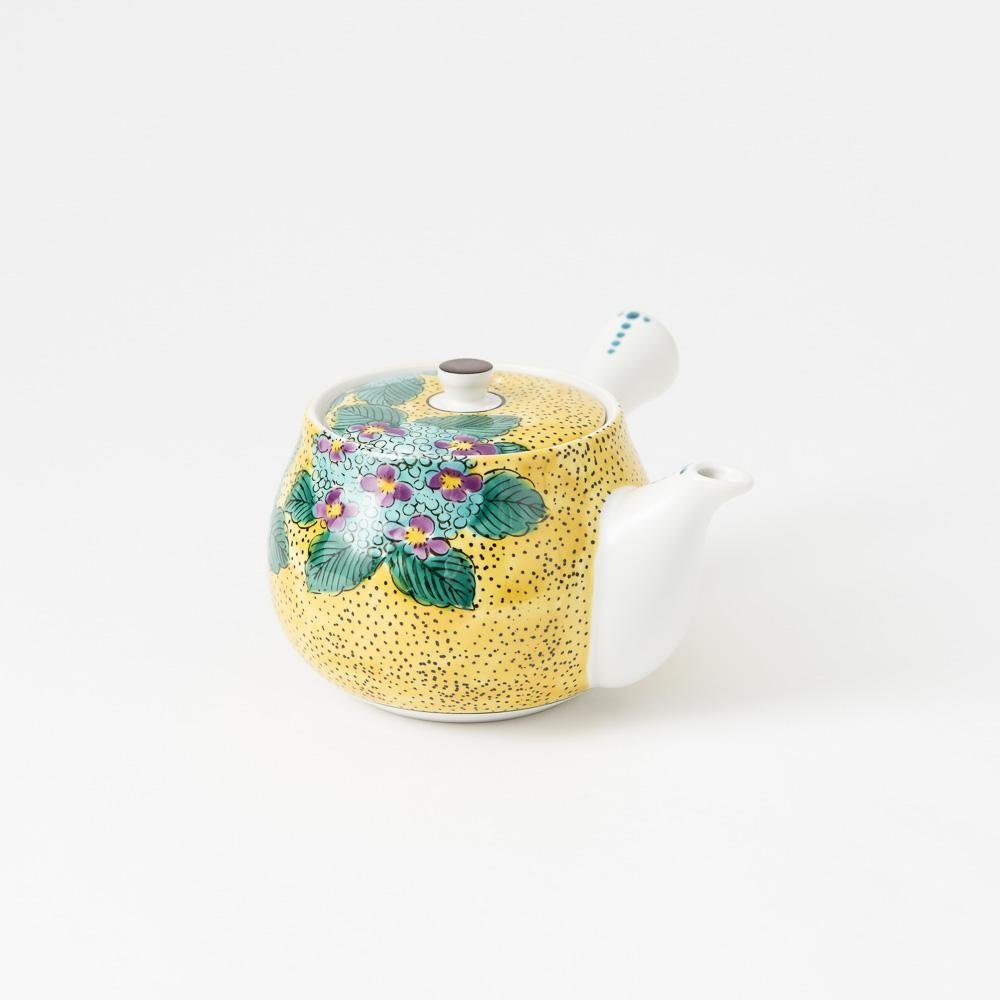
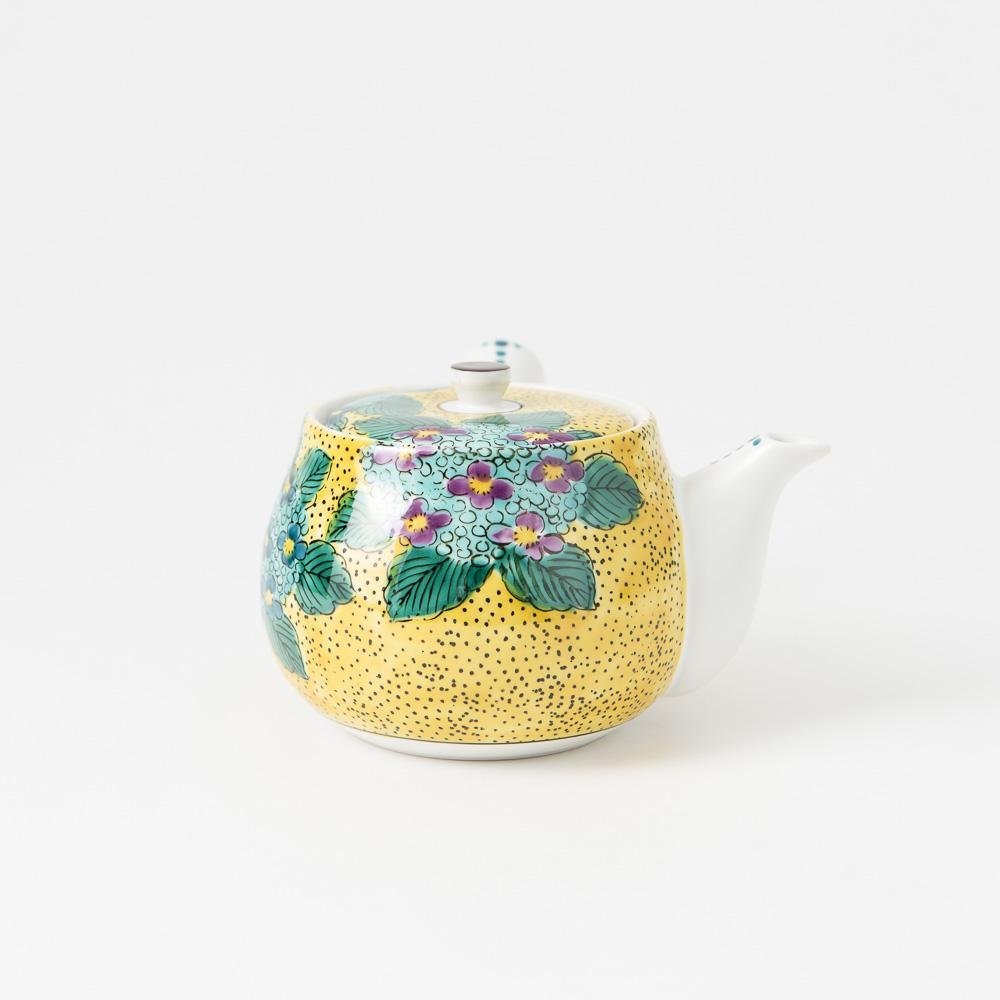
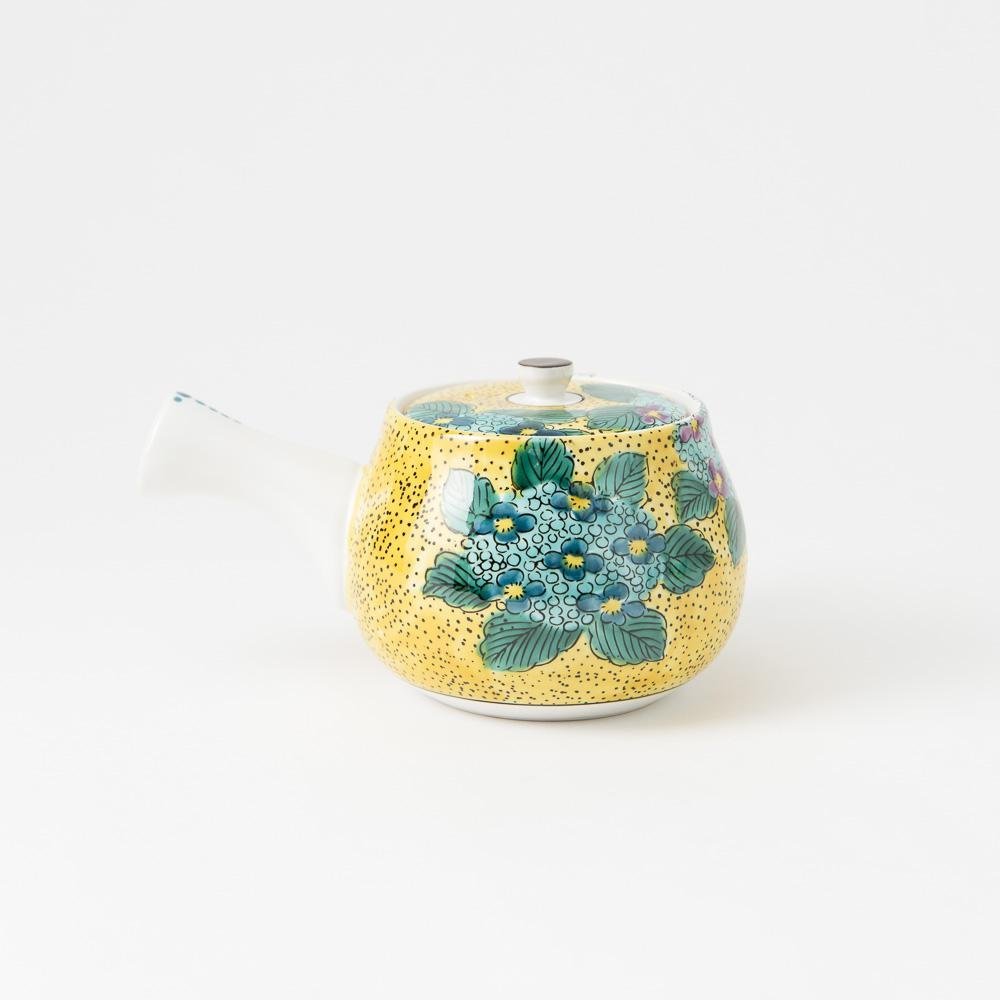
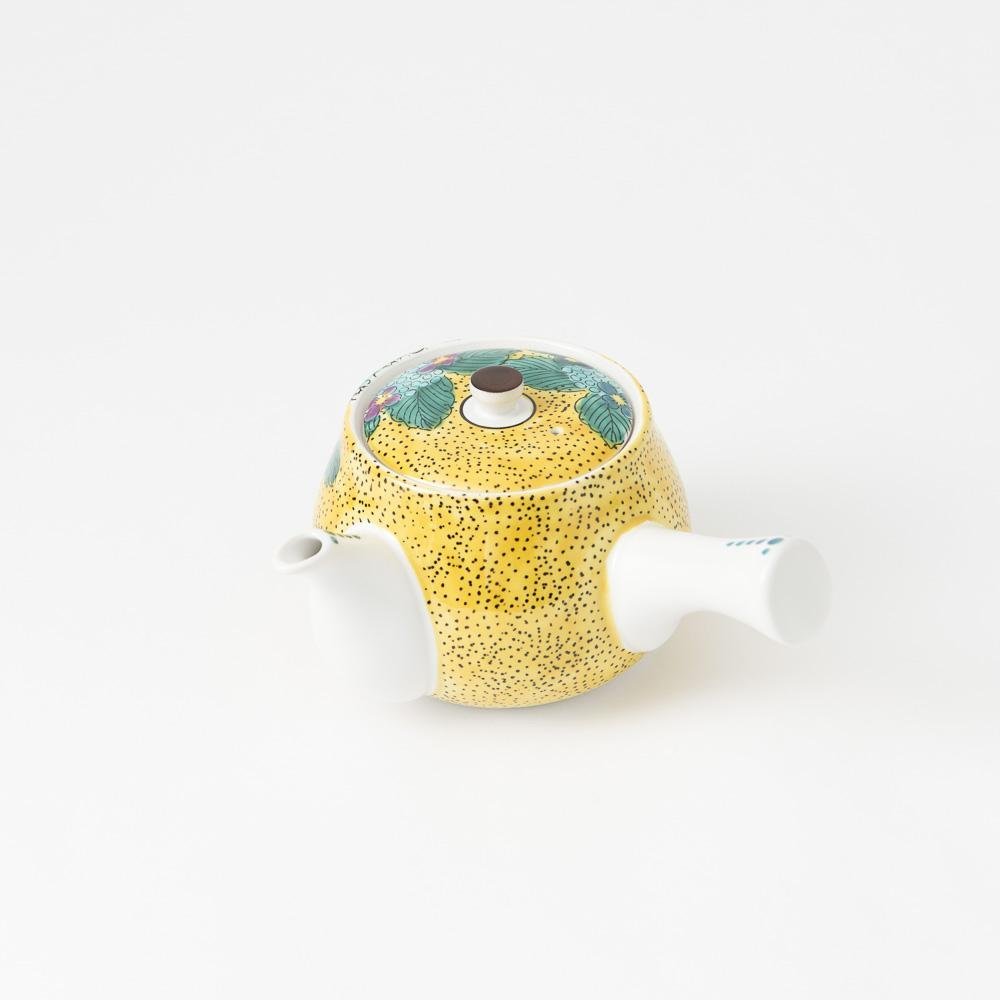
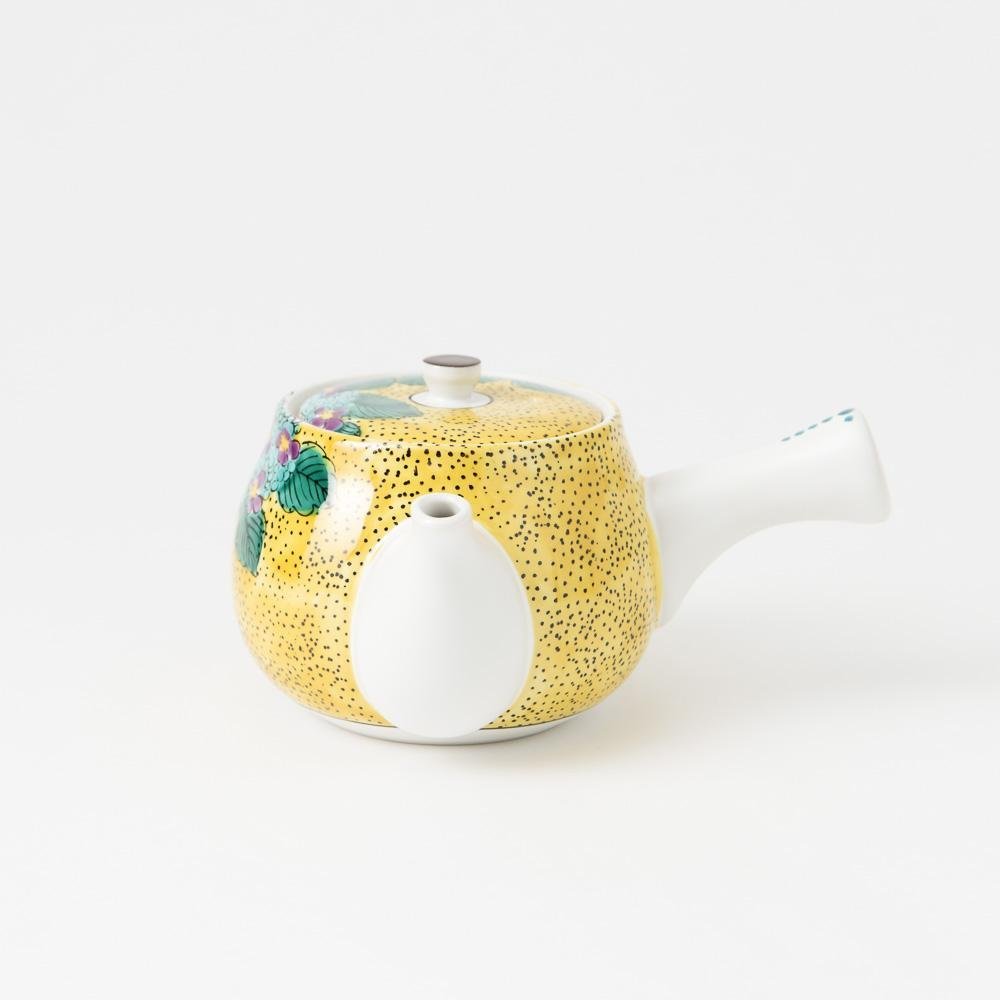
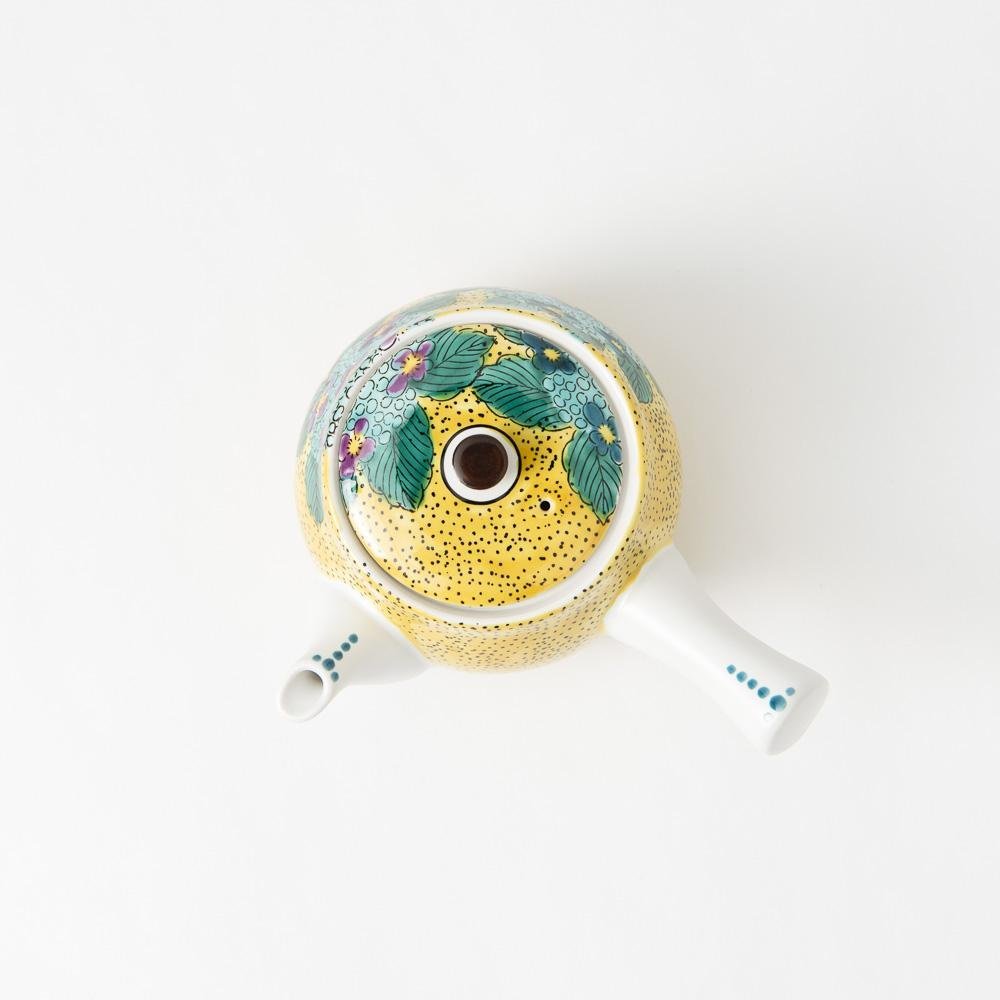
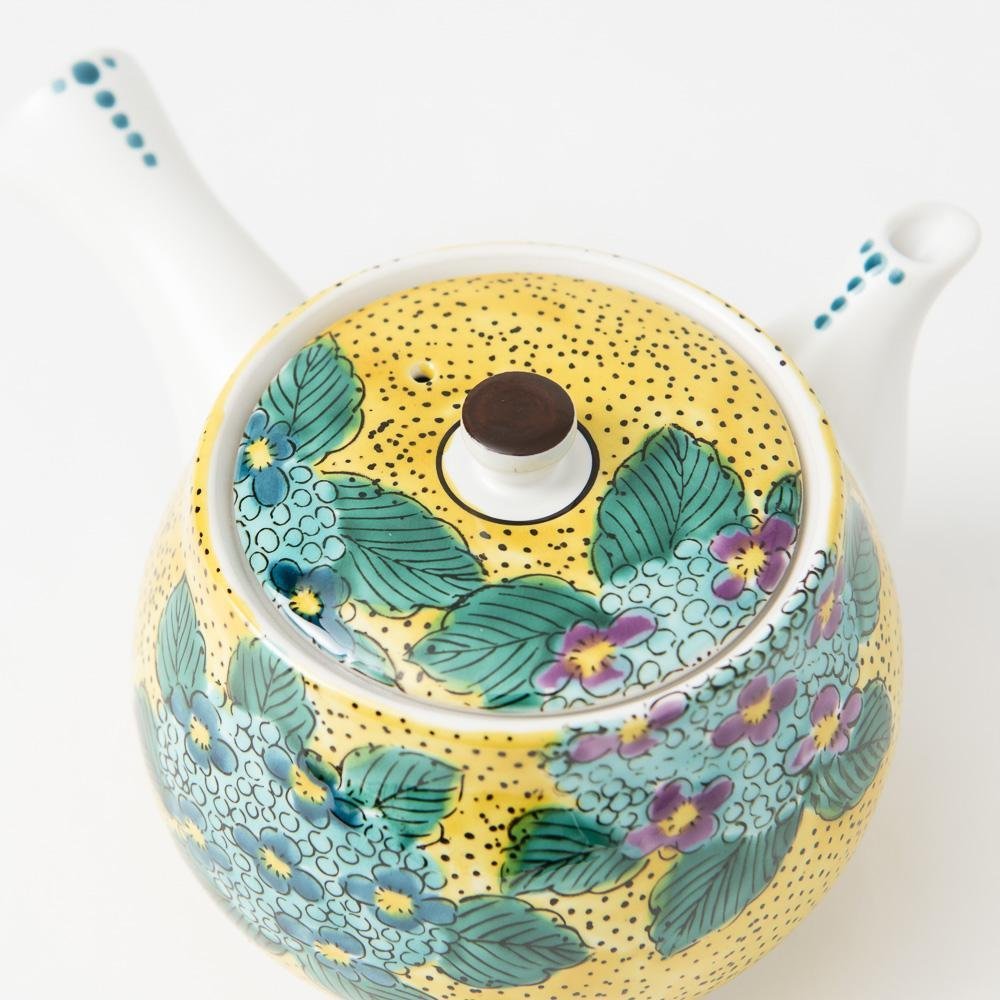
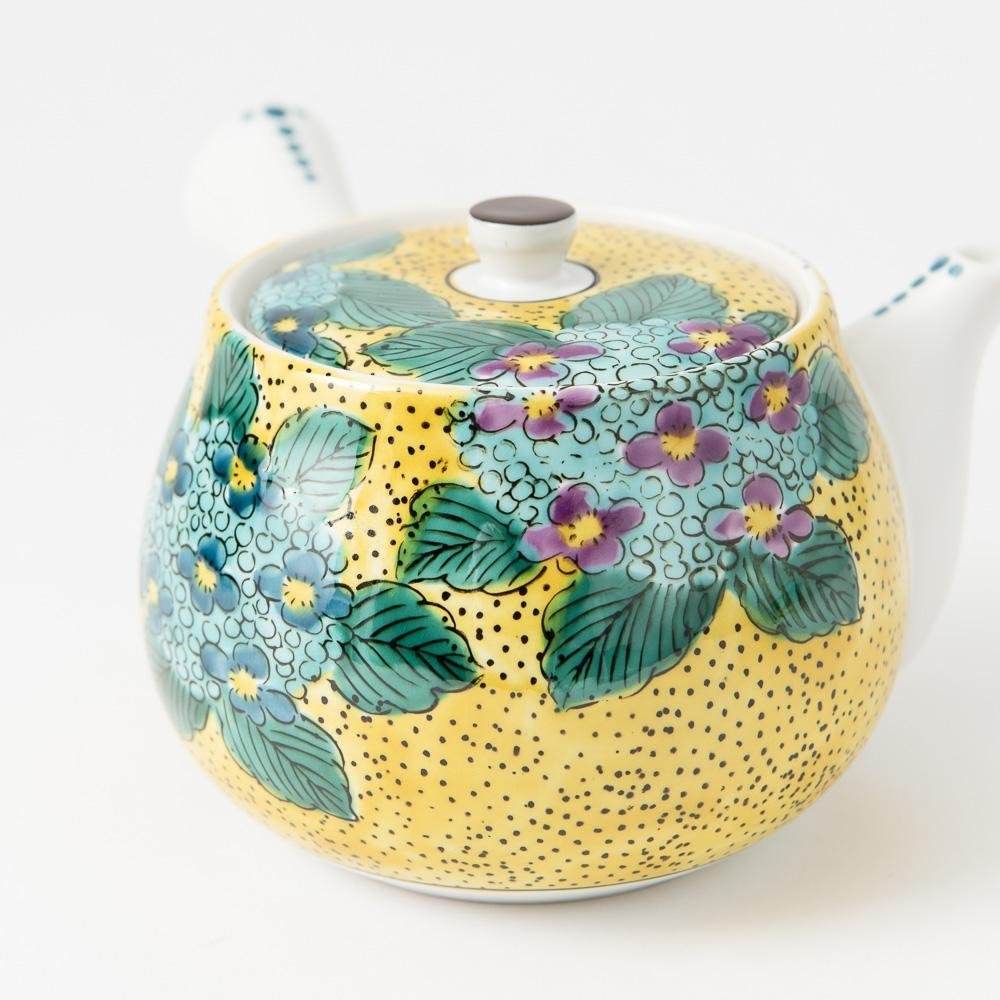
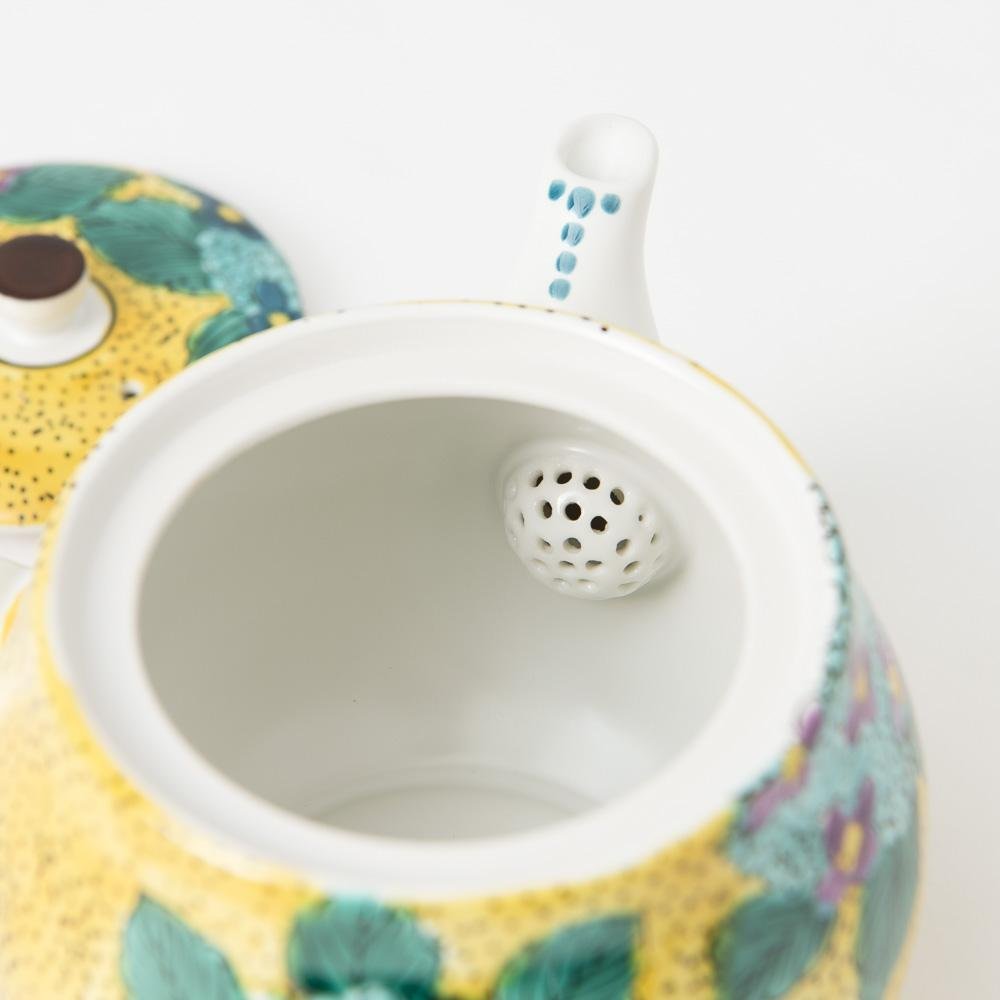
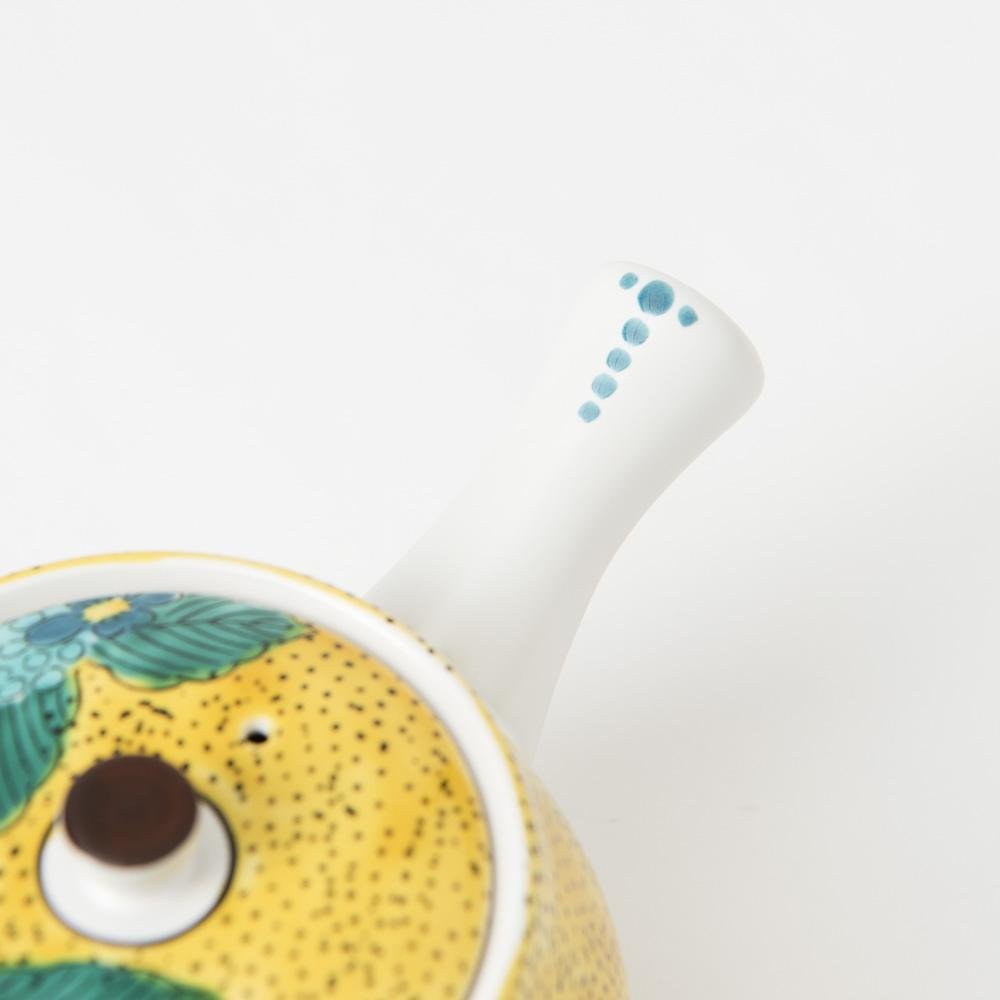
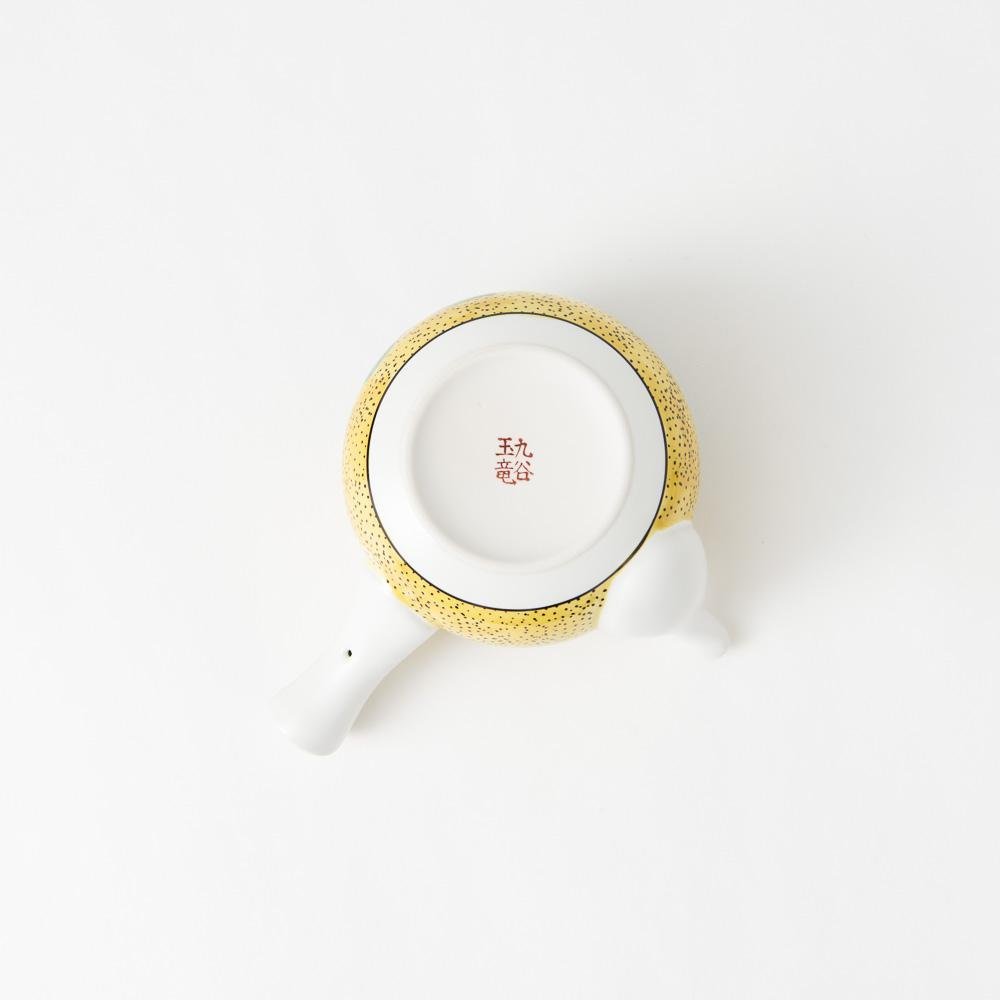
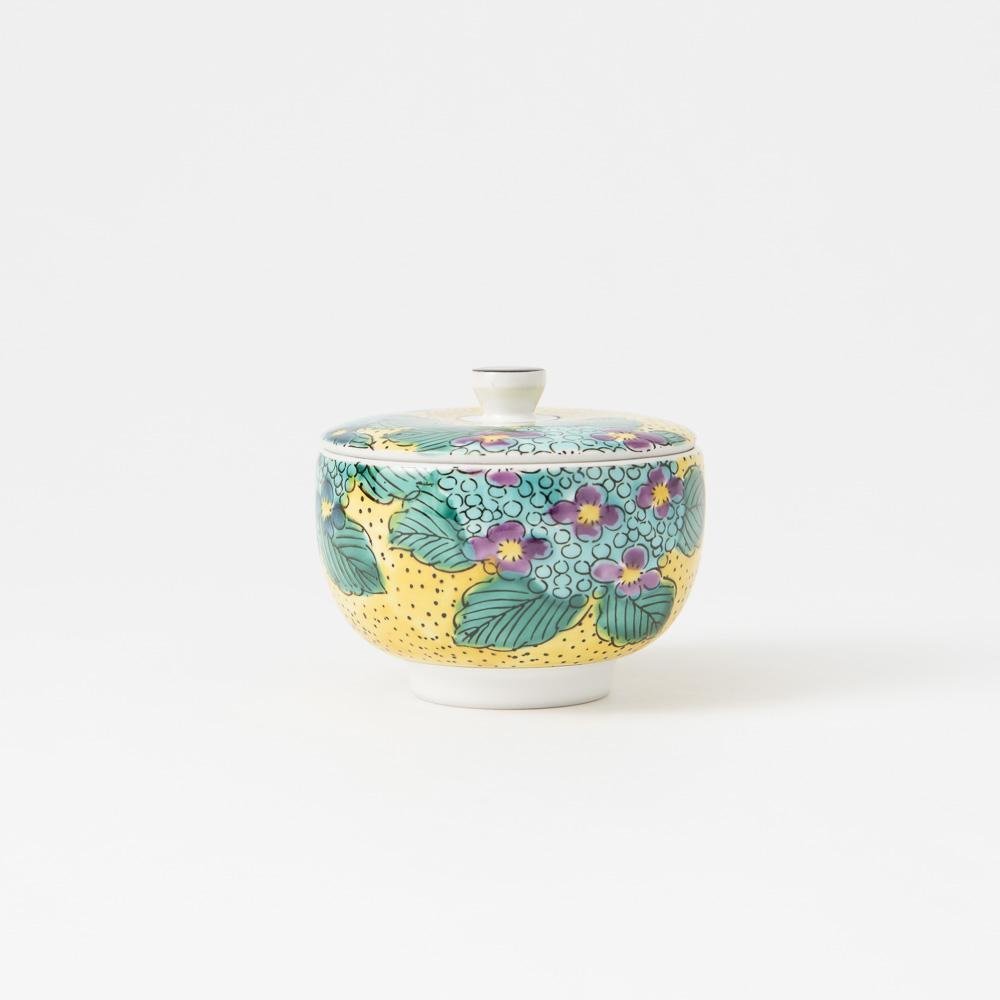
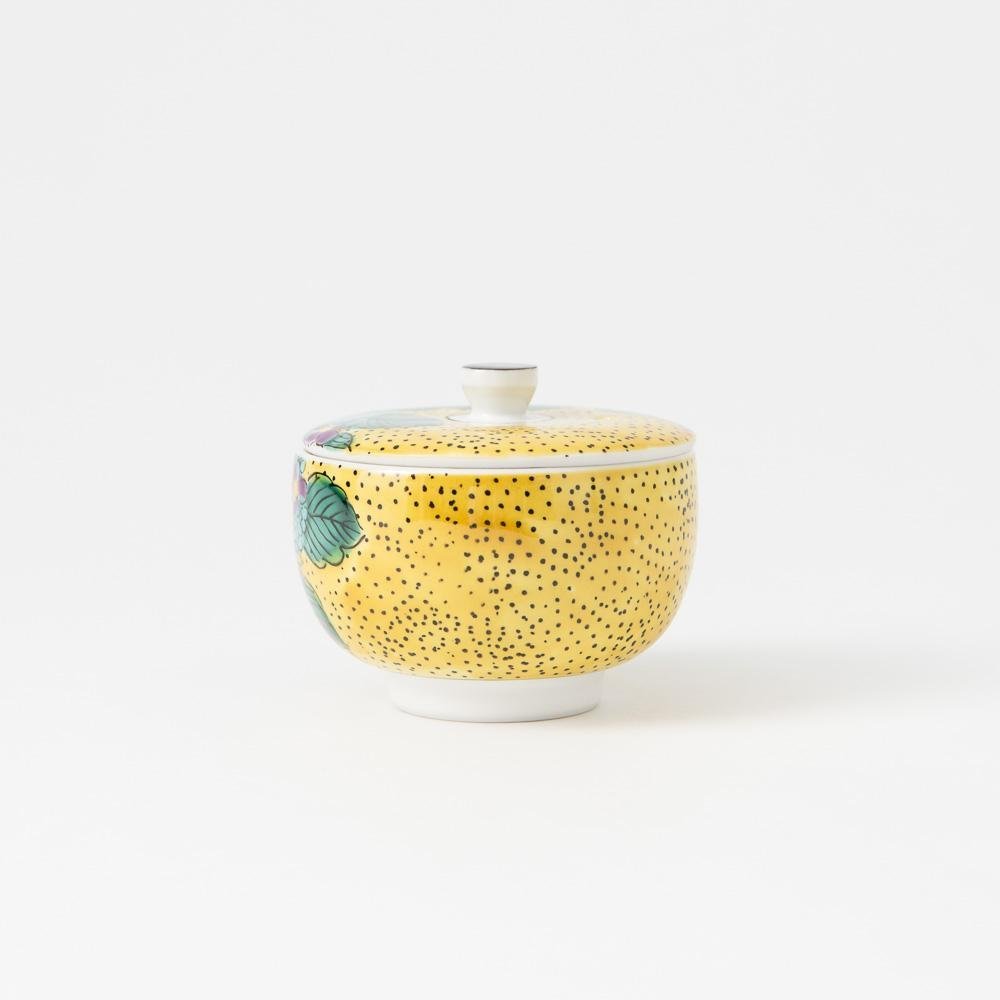
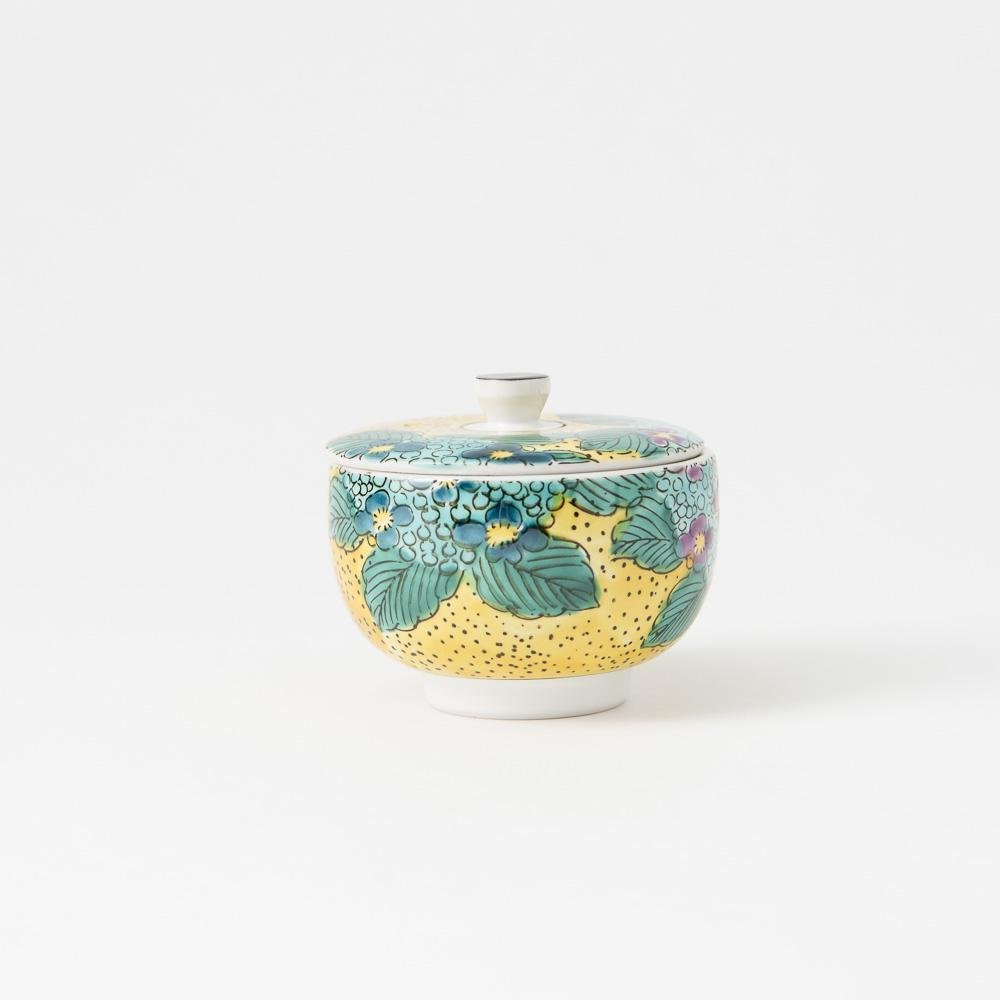
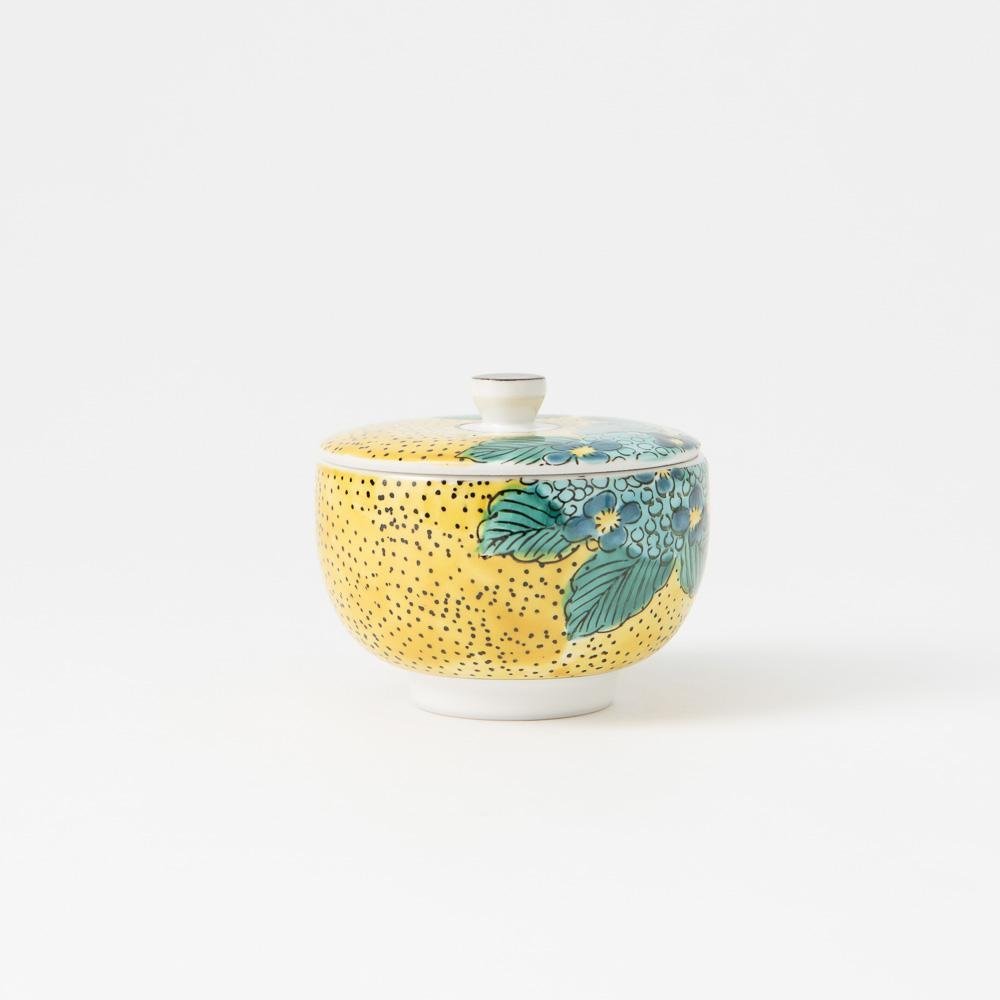
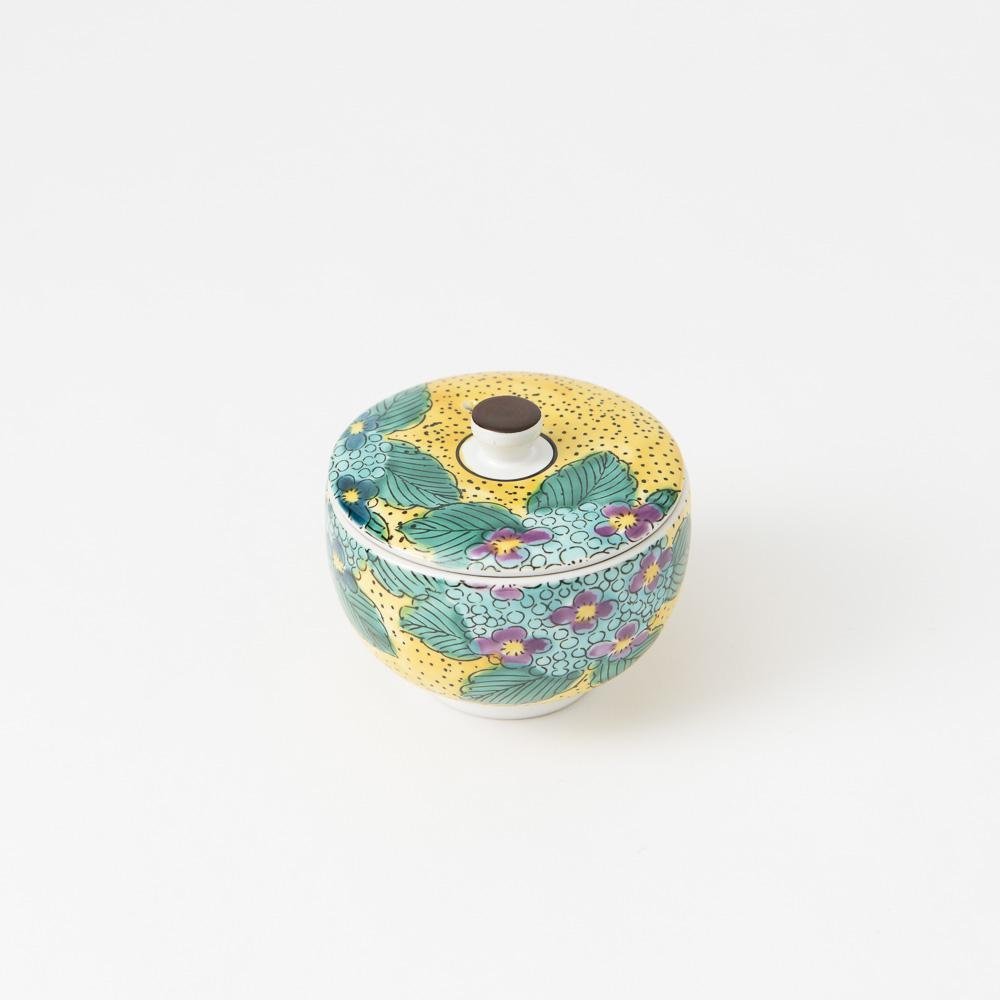
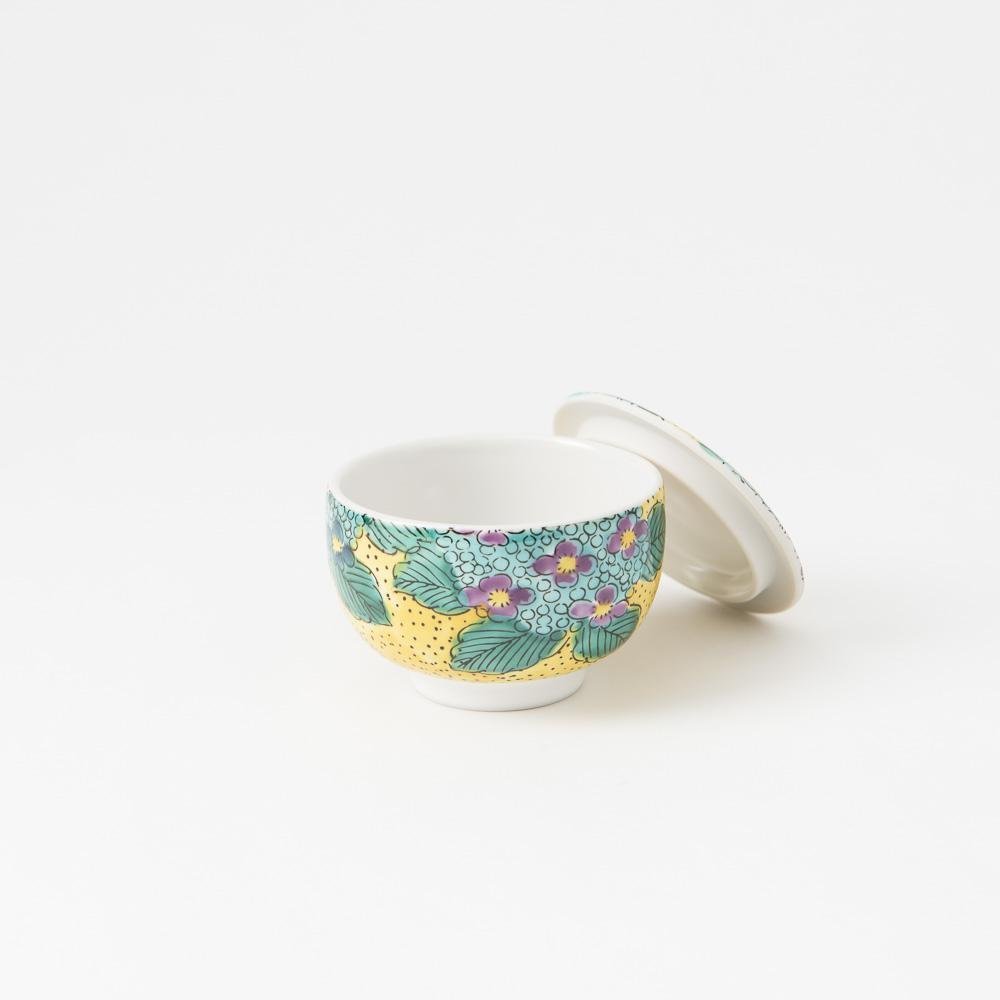
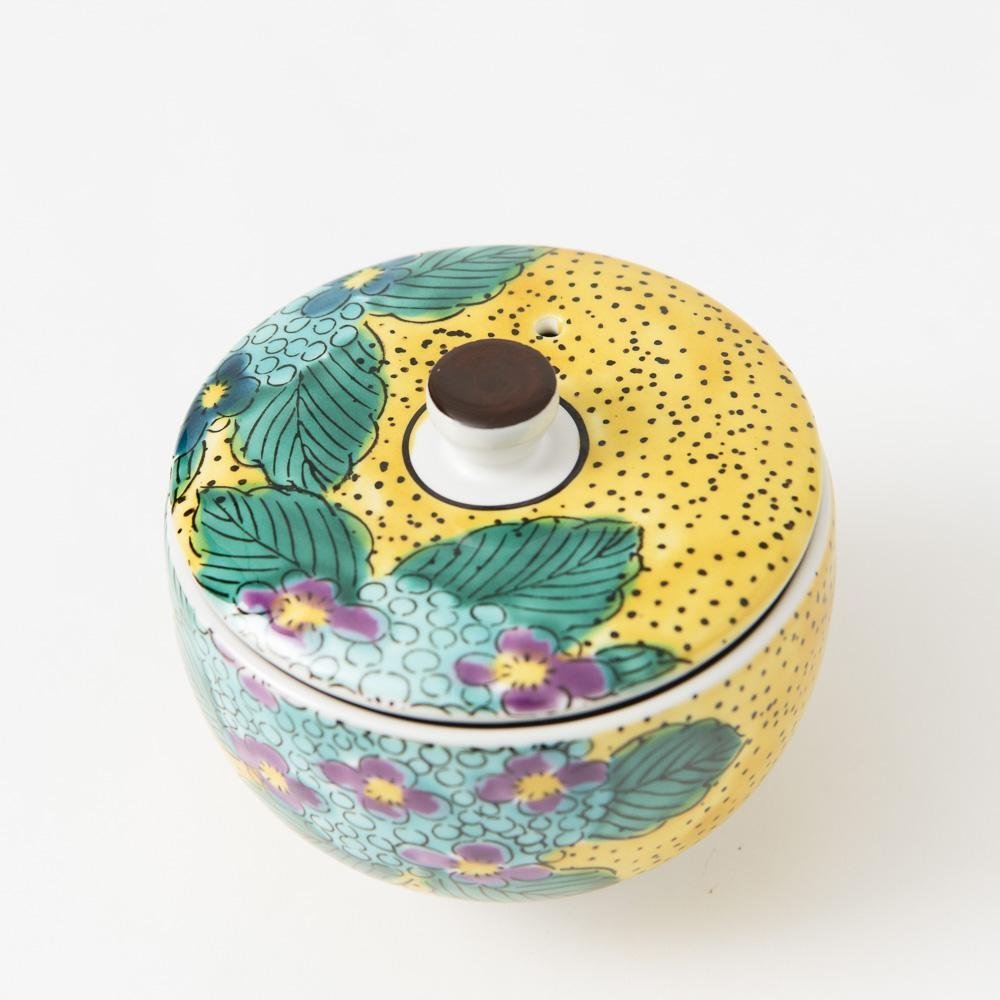
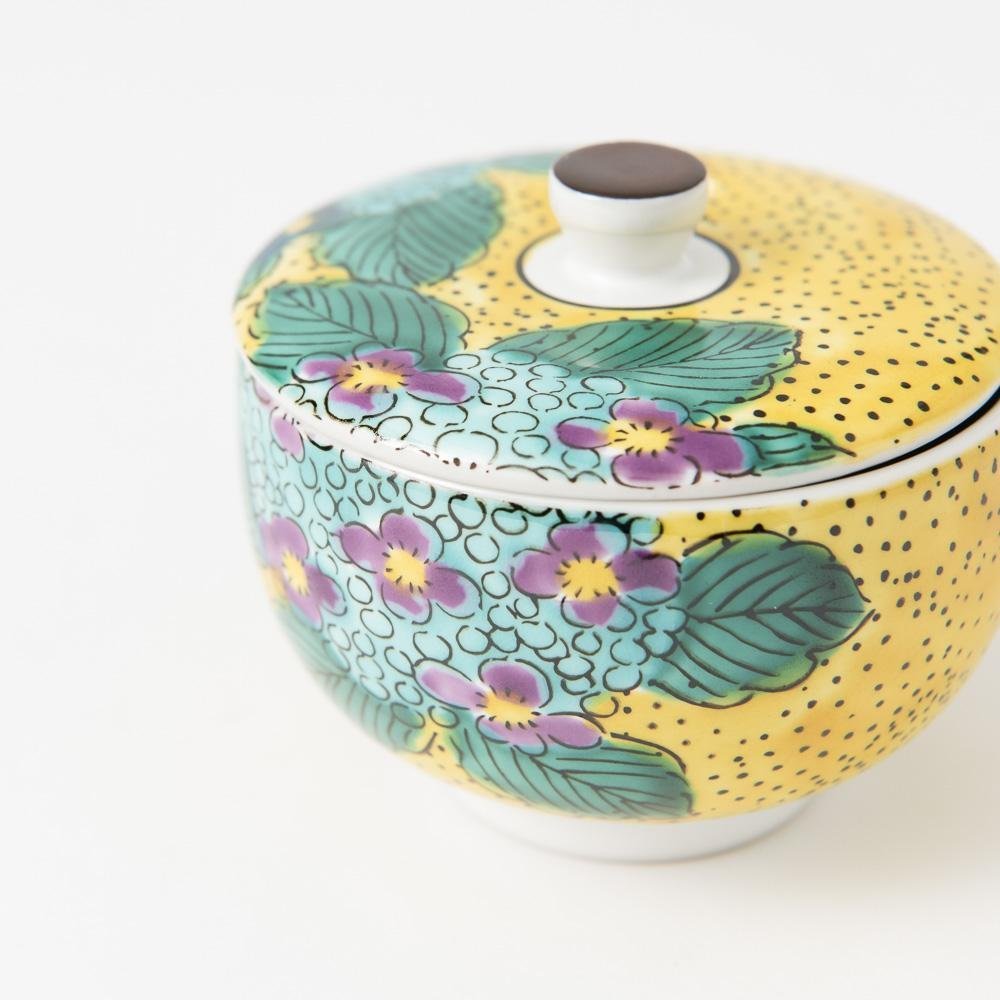
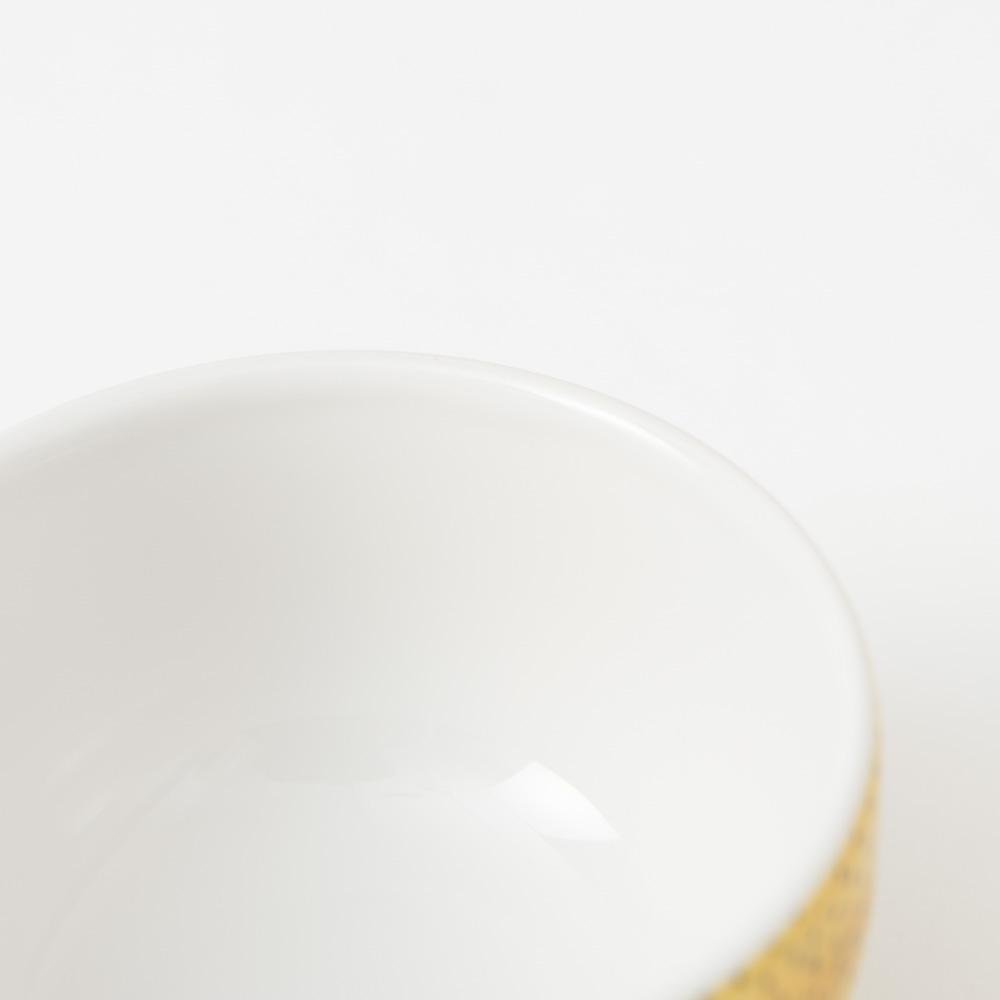
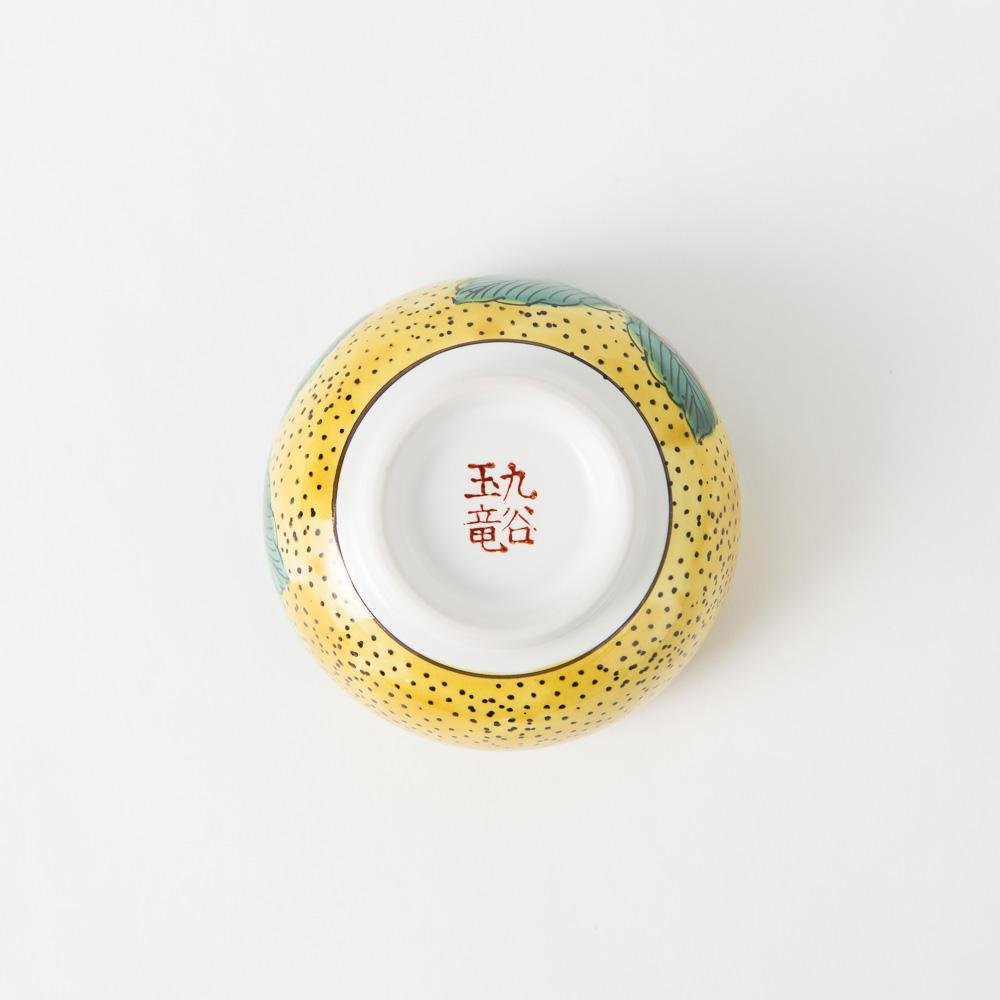
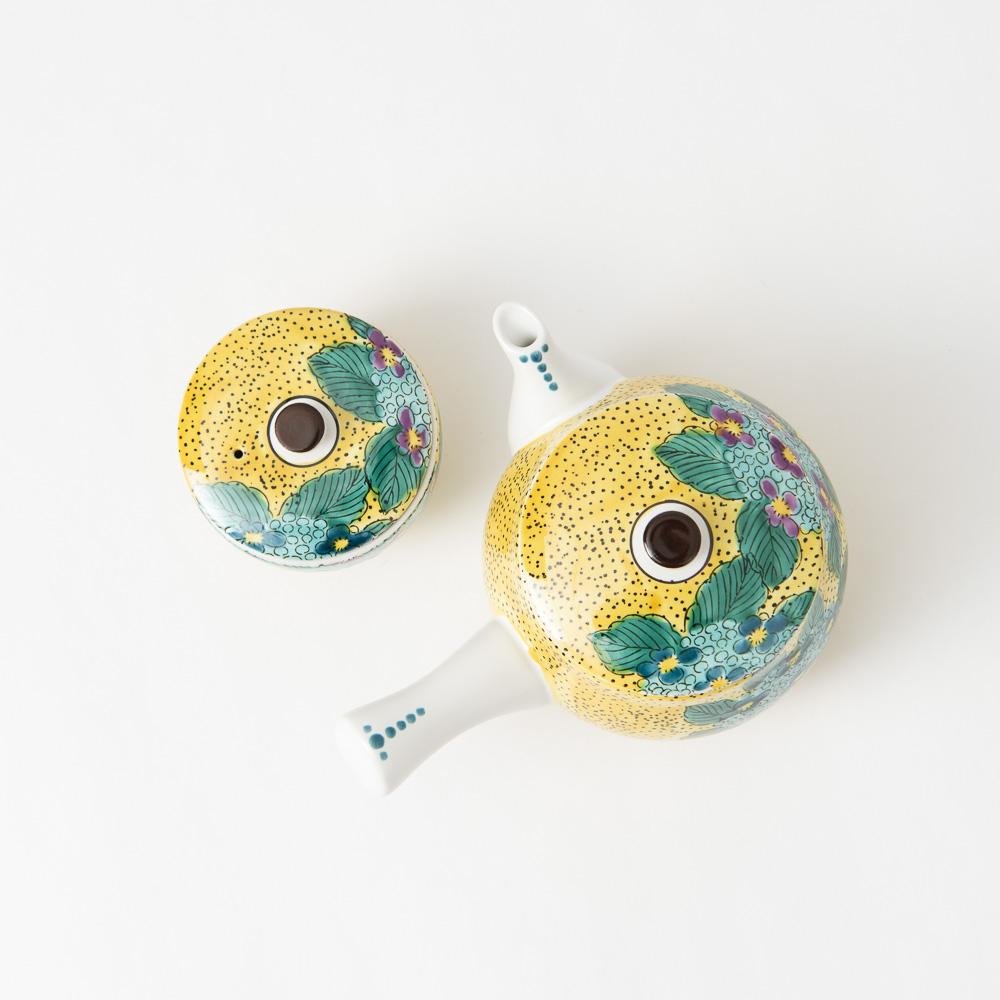
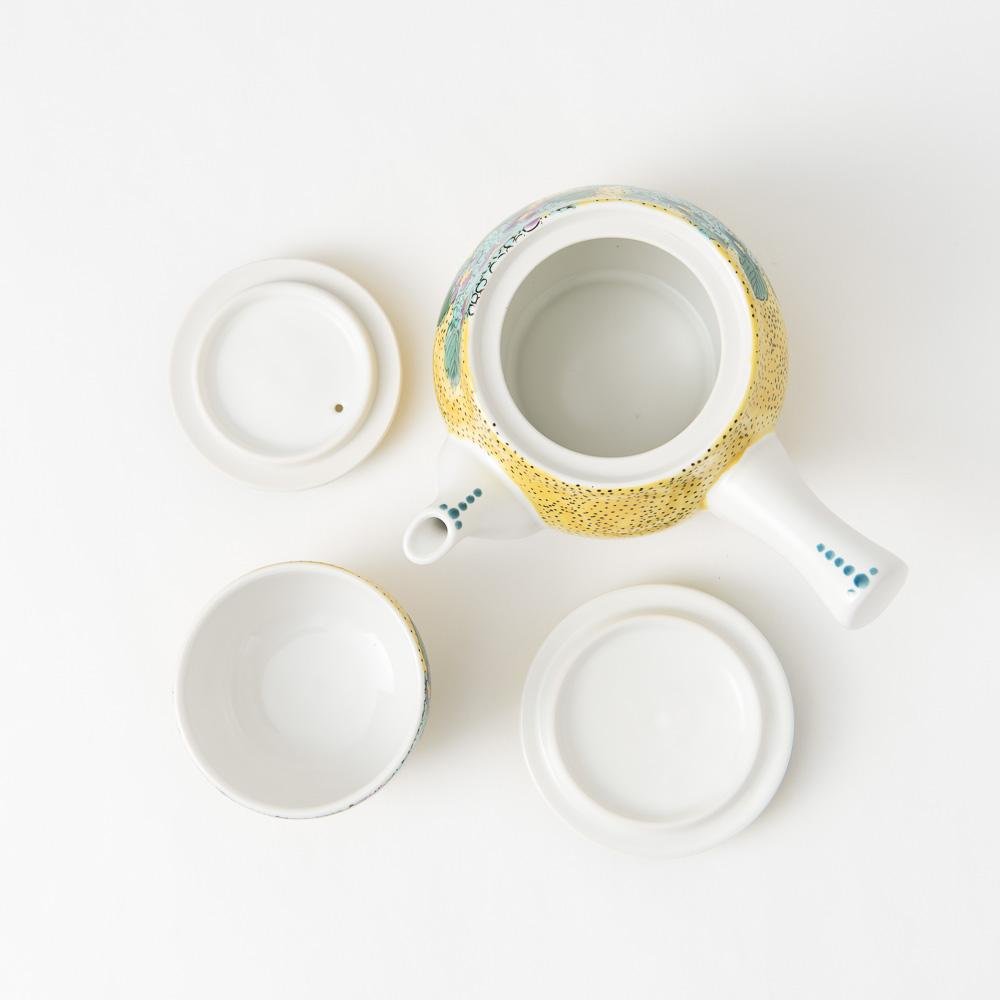
Yoshidaya Hydrangea Japanese Tea Set
Estimated Shipping Widget will be displayed here!
This Japanese tea set features beautiful hydrangea on a yellow base with Yoshidaya style. Hydrangea flowers come in a variety of shades, such as blue and purple, and have been one of the most popular flowers in Japan since ancient times.
The tea strainer is called sasame and is attached directly to the inside of the ceramic teapot. This allows the tea leaves to circulate easily inside the pot, making the tea more fragrant. This is especially suitable for drinking high-quality Japanese tea.
The teacup has a lid, making it very easy to use when welcoming important guests. You can create a more formal impression by combining it with this coaster.
It is perfect for a special occasion when enjoying Japanese tea with your family and guests, and an extraordinary gift for those who love Japanese culture.
DETAILS
| Quantity | 1 teapot, 5 teacups |
| Size | [Cup] D 8.4 cm (3.3 in) x H 5.4 cm (2.1 in) |
| Capacity |
[Teapot] 500 ml (17 fl oz) [Teacup] 140 ml (4.7 fl oz) |
| Material | Porcelain |
| Microwave | No |
| Dishwasher | No |
Crafts
Kutani ware is a pottery produced in the Kaga region of Ishikawa Prefecture, with a history spanning over 350 years. It is characterized by the heavy brilliance of the five colors of navy blue, red, purple, green, and yellow that are applied to the bold and daring lines. Its long history has evolved through the tireless efforts and enthusiasm of people who have sought innovation while maintaining tradition.
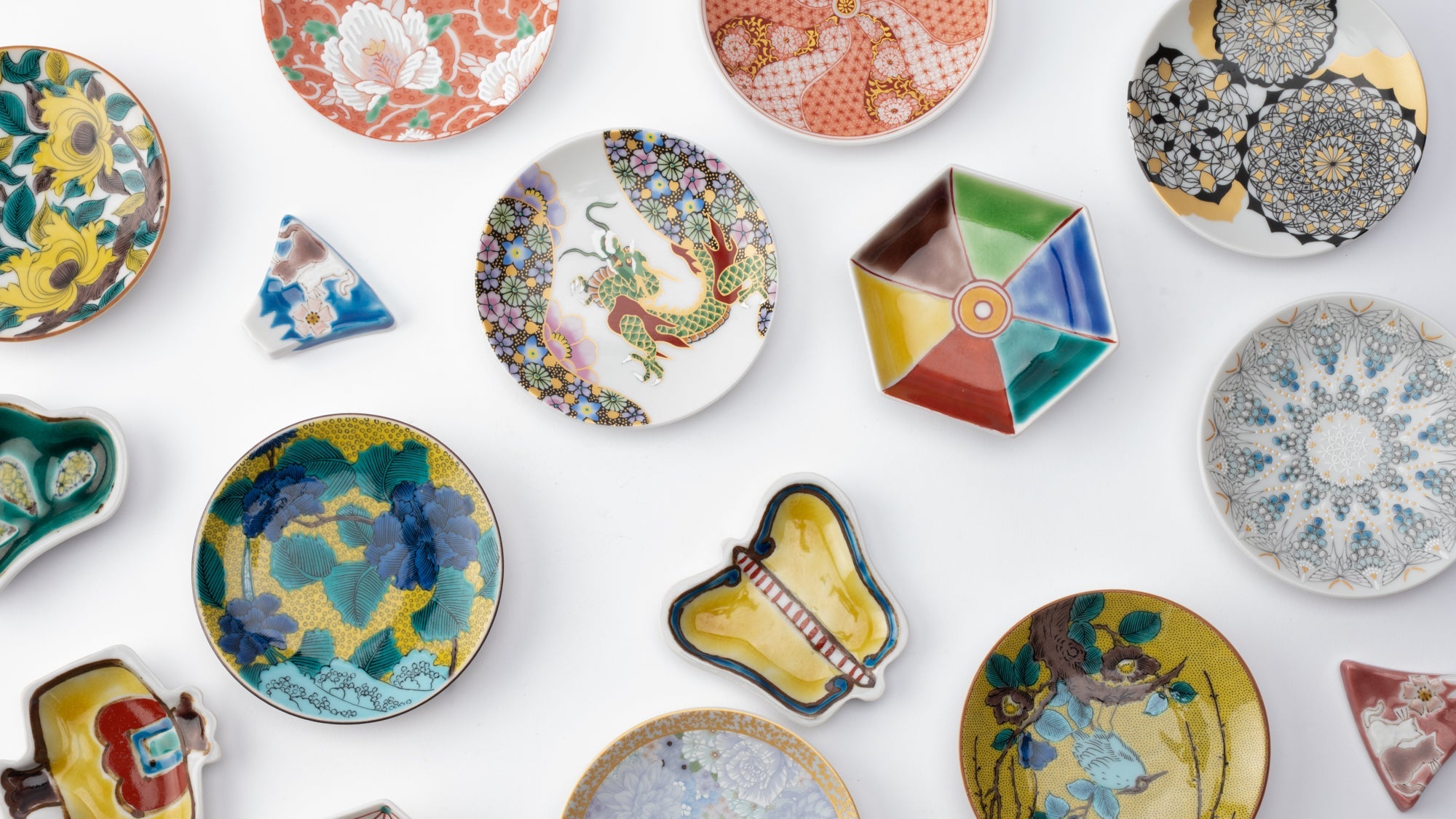
Choose options


























Estimated Shipping Widget will be displayed here!
Japanese Tea Sets
In Japan, ceramic teapots and tea cups come in a rich variety of forms, crafted in different regions using a range of materials and styles. This diversity reflects the depth of Japan’s tea culture and the distinctive character of local tea leaves cultivated across the country.
Our collection features carefully curated ceramic tea sets that pair teapots and cups in perfect harmony. Ideal for daily use or special gatherings, these thoughtfully designed sets, often presented in elegant boxes, make timeless gifts that convey warmth and appreciation.
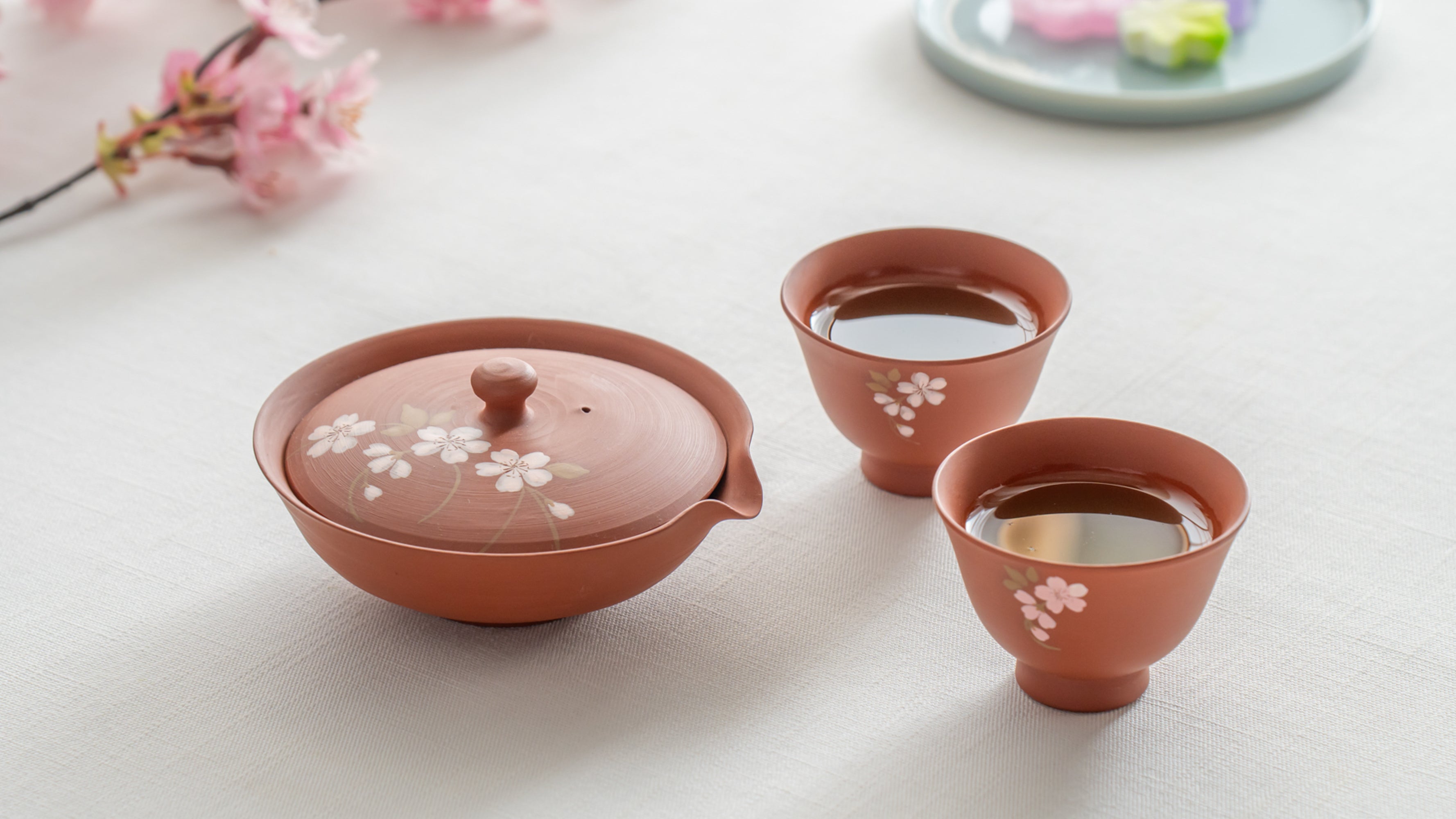
Yoshidaya
The Yoshidaya style, one of the most celebrated traditional styles of Kutani ware, was pioneered by Yoshidaya Denemon in 1824. This style, inheriting the ko-Kutani tradition, distinguishes itself by using an exclusive palette of four colors—yellow, green, navy blue and purple—deliberately avoiding red. The designs are intricate, featuring motifs set against patterned background and expressed through layers of overglaze to create a sense of depth and complexity.
Despite Yoshidaya Kiln closing its doors after just seven years, its works have garnered the highest accolades in late Edo period (1603 CE–1868 CE) Kutani ware.
